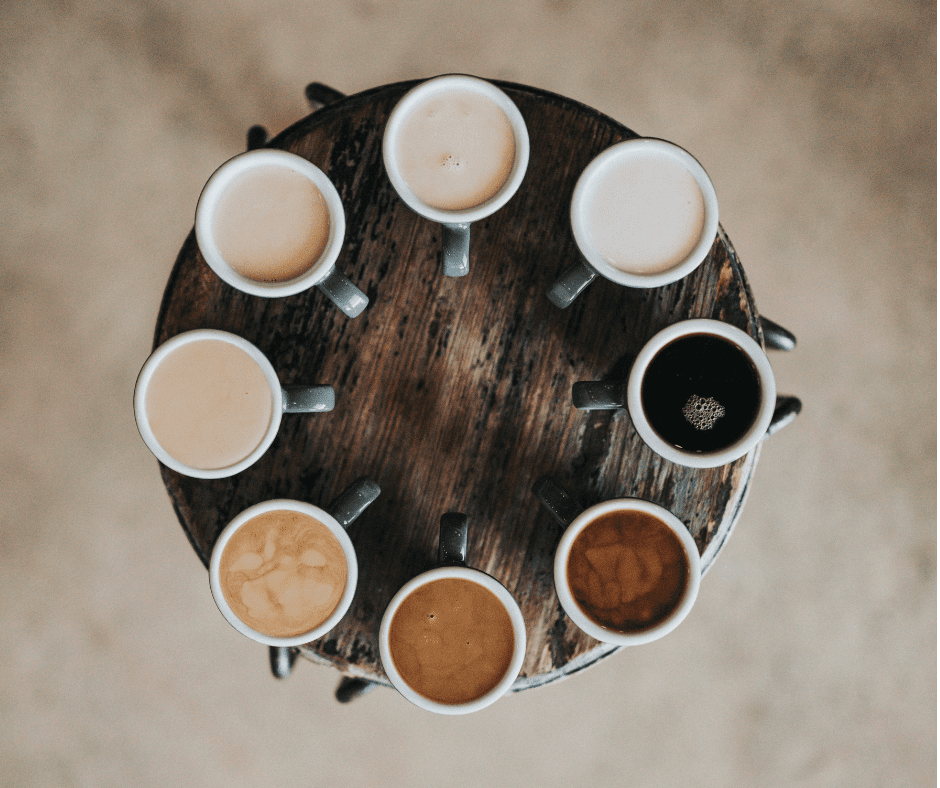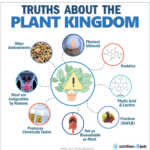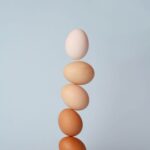

Caffeine Anyone? Think Twice Before Grabbing That Friendly Cup of Joe.


There’s no denying it—as a society, we all love coffee and tea. It’s part of our morning ritual. There’s also nothing like a hot cup of coffee or tea, on a cold winter’s day.
How many of us run errands with a coffee, in hand? How many of us meet our friends at the local coffee shop? Caffeine is a deeply rooted part of our lifestyles. In fact, 80% of Americans drink coffee and 90% of adults and 85% of children in the US, consume a good amount of caffeine daily.
Did I Say, Children? Yes.
Has your child ever had a Sunkist? It has more caffeine than most sodas, 41mg to be exact. What about chocolate, frozen yogurt, ice cream, pudding, breakfast cereals and headache medicines? They all contain caffeine.
What Is this Elusive Caffeine?
Let’s take a deeper dive into the world of caffeine.
THE GOOD
Caffeine has some benefits. It can give us more energy, focus and it can even be effective for hangovers. Coffee specifically acts as a diuretic and may suppress appetite. It also can increase our basal metabolic rate, meaning it’ll help us burn fat.
THE BAD
But caffeine can also cause acute anxiety and panic attacks.
Caffeine can have some significant withdrawal effects, such as muscle pain, weariness, apathy, depression and headaches. If you drink a big cup of coffee on the weekdays and don’t drink it on the weekends until later in the day, you may have experienced those caffeine withdrawal headaches.
I decided to stop drinking coffee almost 3 months ago—actually I decided to remove all sources of caffeine from my body.
It Was a Painful Few Weeks.
Do you intermittent fast without coffee? Those muscle aches may be due to lack of caffeine, not because of the supposed electrolyte imbalance! When I quit caffeine, I had body aches for days and had the notorious headaches. The habit of using my Keurig every morning, was also so ingrained in me, that I didn’t know what to do with myself.
What’s scary is that I’m a pretty moderate user of caffeine. I have one Keurig in the morning and use the same pod to refill hot water. I don’t have any other caffeine – not from teas, chocolate or sodas. I’d recommend anyone weaning off coffee, to take it slow.
The Struggle Is Real.
The struggle is so real that the official Diagnostic and Statistical Manual (DSM-5) of Mental Disorders, the handbook used by clinicians and psychiatrists to diagnose psychiatric illnesses has caffeine withdrawal listed with other drug withdrawals like opiates and heroin.
These addictive drugs seem to have concentrations of dopamine in the nucleus accumbens, a pleasure center in the middle of the brain. Caffeine has some effect in this area. One study showed modestly enhanced dopamine activity, likely related to caffeine’s effect on adenosine receptors which are often adjacent to and interacts with dopamine receptors. By blocking adenosine, caffeine amps up dopamine activity (think pleasure reinforcement). Human studies show that caffeine produces reinforcing effects that have some similar effects as amphetamines and cocaine.
So Why Did I Decide to Stop Drinking Coffee?
I hated that I was dependent on something to get me going in the morning. I also didn’t like that I wasn’t drinking enough water because of coffee. Our bodies need water to have healthy functioning systems in our body. Our body is more than 60% water, our brains and hearts are composed of 73% water and lungs about 83% water. When we drink coffee and other diuretics, it can affect our fluid balance, among other things.
THE UGLY
There are studies that show that the amount of caffeine in a cup of coffee reduces blood flow to the brain by 20-30%. I know how extreme that sounds. I didn’t believe it until I started looking for evidence. This was the final push to take control of my caffeine addiction. As I continued my research, I found other dark sides of caffeine:
1) Anti-Nutrients
Caffeine is a pesticide; a great harbor of mold and coffee contains anti-nutrients like oxalates but not as much as tea and chocolate.
We’ve discussed anti-nutrients here, but caffeine can inhibit vitamins and minerals from being absorbed in the body (e.g., iron). One recommendation is to stop drinking coffee or caffeinated drinks with your meals.
2) Blood-Brain Flow
There’s one study that states, “a mean dose of 250 mg of caffeine produced approximately a 30% decrease in whole brain CBF [cerebral blood flow]…
Caffeine reduced CBF by an average of 27% across both caffeine states.1” Here’s another study that also had similar results.
In fact, Here Are Some Stats on How Our Body Handles Pure Caffeine:
- 64th tsp (in a soda) – subtle boost I energy
- 16th tsp (12 oz of coffee) – good solid dose for a caffeine drinker
- ¼ tsp – bodily unpleasantness (racing heart, sweating and acute anxiety)
- 1 tbsp – can kill you
Frightening? Possibly.
Have You Noticed that No Caffeine Dosage Is Listed on Drinks?
This is because the same cup of coffee you order from Starbucks may differ, depending on the environmental climate, the batch and the barista’s heavy hand. The same goes with lab-created caffeine, added to sodas and other foods. This is also why energy drinks are getting cheaper and cheaper – they’re synthetics.
3) Addiction, Anxiety and Mental Disorders
We’ve already discussed caffeine addiction on the dopamine receptors. Caffeine can cause worsening anxiety and sleeplessness. This is the reason why anxious people are recommended to stop drinking caffeinated drinks. Caffeine can trigger anxiety; some are more susceptible than others but too much caffeine can make almost anyone anxious. High doses of caffeine can produce pharmacological actions that cause systems essentially indistinguishable from those of anxiety neurosis.
Maybe for someone struggling with anxiety, we should remove coffee before putting them on an anti-anxiety pill.
In fact, in the book, Caffeine Blues, “often, the psychological evaluation would include one or more anxiety syndromes and the recommendation was for counseling. I would point out that the person was consuming excessive amounts of caffeine and requested a trial month off caffeine prior to therapy sessions. In about 50% of cases, the anxiety syndrome would resolve with caffeine withdrawal alone.2”
There also have been studies where there are associations between caffeine intake and the increase in stress, anxiety and depression in school children.
Studies show that people susceptible to panic disorders are more likely to have anxiety induced from caffeine. (Affected by certain gene snips).
Hallucinations can be possible with large consumptions or caffeine and usually preceded with panic attacks.
There are many, many studies. Simply search Pubmed.
4) Sleep
A study was done, giving 300 mg of coffee in the morning and no other caffeine, yet they still had some disruption of sleep at night. Also, worse for people that are known for stress-induced sleep issues, caffeine can exacerbate this. Caffeine decreases stage 3 and 4 sleep, which is 20% of our sleeping time and some of our restful, restorative sleep.
The half-life of caffeine is 4-5 hours but varies by bio-individuality. If you use birth control, the half-life of caffeine is 8-10 hours. Smokers process caffeine twice as quickly. Smoker’s half-life for caffeine is 2-2.5 hours. Weight is another variable.
5) Metabolic Disorders
Cortisol is the stress hormone. Coffee spikes cortisol and too much cortisol causes a slew of problems in the body. For example, we get adrenal fatigue and cardiovascular consequences. Caffeine increases heart rate, blood pressure and adds the risk of heart arrhythmias.
Energy drinks with large amounts of caffeine are known for risk of cardiac arrhythmia and seizures.
Studies show if you drink coffee with carbohydrates and then just sit for long periods. You become more insulin resistant.
Decaf Coffee?
I’m sure some of you are thinking, “but I’ll miss the taste of coffee so I’ll just switch to decaf.” I hate to break it to you but decaf isn’t the best alternative. First of all how do you think they remove the caffeine?
They are washed in solvents to remove 97% of the caffeine prior to roasting.
Decaf is not caffeine free. A standard cup can have anywhere from 1 – 7mg of caffeine. That’s more than some caffeinated teas.
There are some known “benefits” for coffee consumption: increased mental cognition, increased metabolic rate and increased performance energy. None of these apply to decaf coffee.
If you drink decaf, you get less of the benefits and possibly even more chemicals than most pesticide-rich coffee beans.
Caffeine Regulation in Other Countries
Canada has rules around caffeine. Products have to be sold as food and not as dietary supplements. Caffeine content must clearly be listed and state that it’s not recommended for pregnant women or children. They also disallow juices and non-carbonated drinks to have any caffeine.
Europe has its own regulations. In Europe, any drink with more than 150 mg of caffeine must state that the product has high caffeine content and the specific amount of caffeine must be depicted. The wording has to be shown in the same field of vision as the name of the drink.
In the US? Sadly, no significant caffeine regulations seem to exist.
Conclusion
Some people have to drink coffee all day to feel alert. They’re so amped that they need wine to sleep. It’s a vicious cycle.
For some people, coffee is used to increase mental focus and energy but for many daily users, it’s simply to stave off the caffeine withdrawal symptoms.
For me, once I removed caffeine from my food intake, over time, I noticed that my mood had stabilized. As soon as I woke up, I was ready to go. Sure, some days I’m still tired but I don’t feel that dependence on coffee to get me going. I have more patience with my kids and am far less irritable.
I’d love to be around for my great-grandkids and if removing coffee gets me one step closer to that dream, I’ll gladly give up coffee. Frankly, after doing all this research on caffeine, I’m a bit terrified by the supposed innocuous drug we call caffeine.
Try to remove caffeine from your diet for 30 days. It just might be a game changer.
If anything, try to remove caffeine from your child’s diet.
___________
1 Addicott, M. A.et. al., (2009). The effect of daily caffeine use on cerebral blood flow: How much caffeine can we tolerate? Human brain mapping, 30(10), 3102–3114. doi:10.1002/hbm.20732.
2 Cherniske, Stephen: Caffeine Blues. Grand Central Publishing, 1998.




John Talbert
June 11, 2019 at 8:23 amThanks for this information, Judy. I’m a coffee drinker, so it’s not good news for me. But based on what you’re said here I’m planning to eliminate coffee from my diet. I’m not looking forward to the withdrawal symptoms though. Again thanks for the work you’re doing here.
Freedom
June 19, 2019 at 9:51 pmGreat article. I had to cut it out. Coffee and carnivore did not mix well for me. I was crashing hard after my first meal. Its been a month now and I’m not having those crashes anymore ?
Atena
June 19, 2019 at 10:59 pmThank you❤️
Marie
June 20, 2019 at 8:18 amWow thanks for that info. I’ve been following you on IG and find myself screenshotting almost every post you make 🙂
I must admit I never drank coffee before, but I started last year when I started zero carb. Not sure why except the one my mom makes is good and I spent a few weeks at her place… I actually find these days that I’m a better mom when I do have coffee. I find myself super impatient and screaming when I don’t. I admit I have a spoonful of honey in it but that’s my only above-zero carb food. Is it the carbs? How would you explain that? I’m genuinely curious now. If it matters: I have two small children so I AM tired. I’ve had surgery for Crohn’s 3 months ago (now missing about 2ft jejunum and terminal ileum,) and currently battling C.Diff. Thank you for your time!
Judy
June 28, 2019 at 3:04 amHi Marie, thank you for following on IG! It’s hard to exactly pinpoint the mood and coffee but I have 2 young boys under 5 and so I completely understand. But without knowing your full situation, I’d wonder how much the sugar is impacting your glucose and overall insulin levels. I’d also be curious to understand how the sugar is affecting your adrenals. Coffee also affects your adrenals as does stress. Both steal vitamin Bs and so you may need more vitamin Bs which can provide energy, among many things. Having Crohn’s and removing some of your intestines can definitely impact your nutrient absorption as well as affect the stress of the body healing too. It’s really hard to say but one way to know about the sugar is checking your glucose in the mornings for a few days. Check your glucose in a fasted state, and then after you have the coffee. One hour after, and then 2. Then do this for a week or so. If your sugar levels in the morning are above 100, the crankiness may be due to glucose and insulin needs. (I’d recommend cutting the honey then).
Additionally, in general, while healing the gut, removing sugars are best to heal. If you saw my post today on probiotics, it’s important to heal the gut and have a good microbiome. Sugar can negatively affect this. Best wishes and I hope you recover fully weel with the surgery.
Take time for your self. Kids can cause a lot of stress and you need to heal so that you can be there for them.
Marie
November 18, 2019 at 2:37 pmHi!
I thought I’d come back to add some info. I haven’t tested my BG, but I have found that dairy makes me angry. It’s not the coffee or the sugar, it’s the flipping dairy! I’ve cut coffee (with cream) and also most dairy now for a while, but whenever I have a piece of cheese or greek yogurt, I get angry at my kids over the most insignificant thing a few hours after. It’s crazy how much going ZC uncovers! Anyway, just thought I’d add this in case it helps someone.
Hayley
January 23, 2020 at 11:10 amHow about matcha green tea?
admin
January 28, 2020 at 10:33 pmIt still has caffeine and green teas are very high in oxalates. I’d say no.
Lily
February 21, 2020 at 9:38 amThere is a difference method they use for decaf coffee which is the cleaner version: it’s the Swiss water method. That’s what I drink 😉
Rosinia Couturaud
January 25, 2021 at 1:44 amThank you Judy
Viv Forbes
January 22, 2022 at 2:17 pmThanks for this posting we can read (not listen). I often start to listen to recordings but almost never finish as they take too long. I can speed read but I cannot speed listen. More text please. Mercola has recordings but always has essential text too.
Casie
May 4, 2022 at 8:09 amWhat is your opinion on Swiss water process decaf coffee?
I help getting off caffeine and then getting back on. 🙄
Nutrition with Judy
July 26, 2022 at 10:41 pmSwiss water coffee is the next best option!